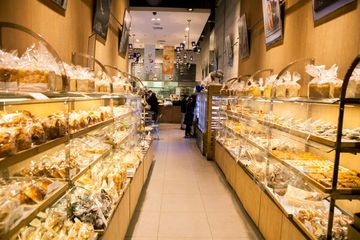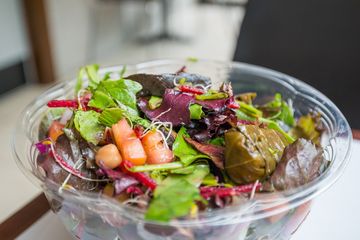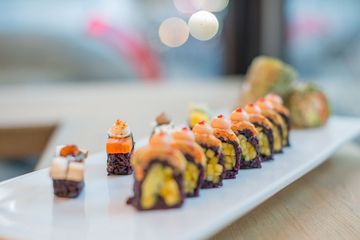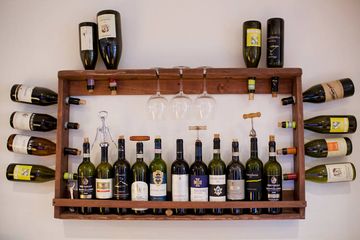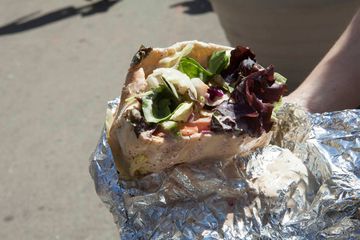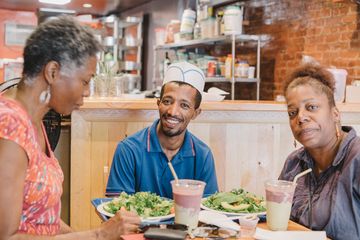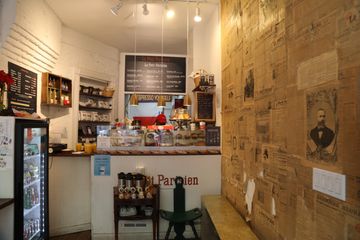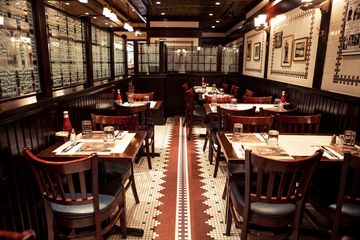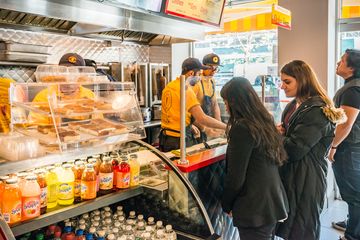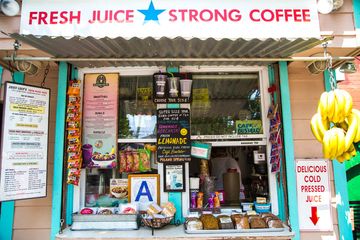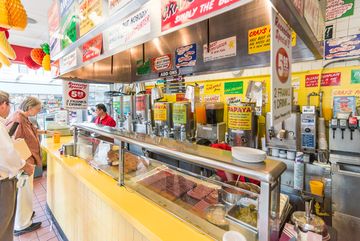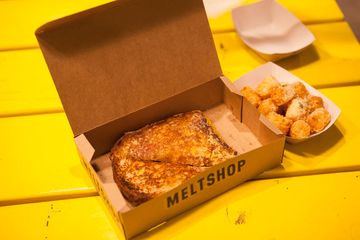Oasis Jimma Juice Bar has moved to 3163 Broadway, New York, NY 10027. As we enjoyed a nutritious quinoa and vegetable bowl and a "Times Square" smoothie, Abdusalam, the owner of Oasis, was kind enough to sit down with the Manhattan Sideways team and share his story. He was born in Ethiopia, “the birthplace of coffee, ” and grew up on his family’s farm. His view of food as essential to health was shaped early on by his parents, as his father had a holistic clinic that used what their farm produced to help the community and provide adequate nutrition. His mother would cook for the visiting patients, and she taught Abdusalam to do the same — even though it was uncommon for boys to learn to cook in Ethiopia. After his father’s passing, Abdusalam left home at 14 and entered the mining industry to make a living. It was quite a change from his upbringing, he confessed, since he went from a farm where food was fresh and readily available to an area where both food and water were scarce. In retrospect, he realized that this is where his troubles with nutrition began, as it was the first in a long string of environments where he had little to no access to healthy foods. Even so, he drew on his mother’s teachings and chose to become the cook for the other miners. He retained this position until the outbreak of war forced him to flee the country and join a refugee camp in Kenya, which suffered from a scarcity of resources. It was during his stay at the camp that he was diagnosed with diabetes, a condition that played a large role in reshaping his understanding of food. Abdusalam faced many trials upon emigrating to the US in 2004. When he arrived in Harlem, he was broke and did not speak any English. Language was not the only new element he had to adapt to: he was astonished by American food. Living in refugee camps and traveling across the Middle East left him malnourished, and he admitted that, “supermarkets looked like heaven to me. ” But the most shocking aspect for him was not the abundance of food, but rather its high fat content and overly processed nature. “I didn’t know food was unsafe. In my country, food is safe, and if we don’t have it, we don’t have it. ” He was struggling to provide for himself and his family by working three jobs, so fast food and other cheap, unhealthy options were the most convenient for him. With time, he developed increasing health complications as a result of his poor diet, heavy workload and diabetes. To combat these, he began researching nutrition and wellness, which eventually led to the decision to eliminate all processed foods from his diet. He quickly saw what a positive impact this made for him and his overall wellbeing. These results motivated Abdusalam to open his first juice store on 125th Street in November 2012, where he could impart his philosophy about food to others. “It’s not about business for me, it’s about sharing my idea that food should be good, affordable, healthy and delicious. ” To aid in this goal, the walls of his shop are covered in facts about food and tips for healthy eating. Since its opening, according to Abdusalam, Oasis Jimma Juice Bar has become one of the top five juice bars in the city. Inspired by this success, in 2017 he opened another location on 139th Street, in his own neighborhood, to continue providing Harlem with access to better options. His passion for his mission was obvious. “People should learn about food — how to eat, how to cook, how to buy, ” he insisted. When we visited during the summer of 2017, Abdusalam told us that he was in the process of opening the Oasis Power House on 139th Street. His plan is for this to function as a “no judgment zone” where people will be encouraged to teach their particular talents and passions to anyone who wants to learn them. He envisions it as a space where those who are seeking meaning and purpose in their lives can find it by sharing what they love with others, be it piano lessons, arts and crafts, writing, or any other skill. Abdusalam hopes to continue giving back to Harlem, his adopted community, by sharing his story and ensuring that others can learn from and be inspired by his life experiences.
